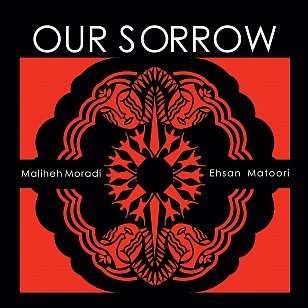Graham Reid | | 1 min read
Six Doors

While the world's attention is rightly on Gaza, the West Bank, southern Lebanon and Israel, the plight of many people in Iran – especially women whose lives are severely restricted – remains.
As we are aware, Iranian women have clothing, behavioural and career impositions, and since the revolution in '79 been prohibited from singing solo in public.
US-based singer Maliheh Morandi studied at the Tehran Conservatory of Music but recognised how limited a career in solo performance would be so immigrated and began to sing traditional songs, always hoping to be able to return home and perform there.
That hasn't happened (and doesn't seem to be in her foreseeable future) but she has continued to perform and – with composer Ehsan Matoori – her presents an album about the injustices confronting Iranian women.
Using poems by Iranian writers, Moradi and Matoori present a series of highly emotional and dramatically arranged songs which in part echo her struggle and life story.
There are stirring pieces here like Be My Moon (“forget the story of the Sheikh and the Shah, tell me about the story of love”) which, with a choral part at it centre, swells into high drama and seems much longer than its 3.12 running time, such is the emotion Moradi brings to it.
Since I Became Your Prey (“you saw my helplessness and didn't find me worthwhile”) is an extraordinary song of pleading hurt and the title track echoes the disappointment felt after the 2019 protests resulted in a nationwide crackdown and further suppression.
There is orchestration for strings (cello, violins, violas) alongside tradition percussion and instruments (ney, santoor, oud) as well as bass and drums.
With lyrics in translation in the booklet, Our Sorrow is an album which opens the door into events and the recent history in Iran which concludes with the 10 minute melancholy Tale of Sorrow: “We reached the end without ever starting, our feathers scattered without ever flying.”
.
You can hear this album at Spotify here or buy the CD with liner notes and translations at Arc Music here
You may also be interested in this article at Elsewhere





post a comment